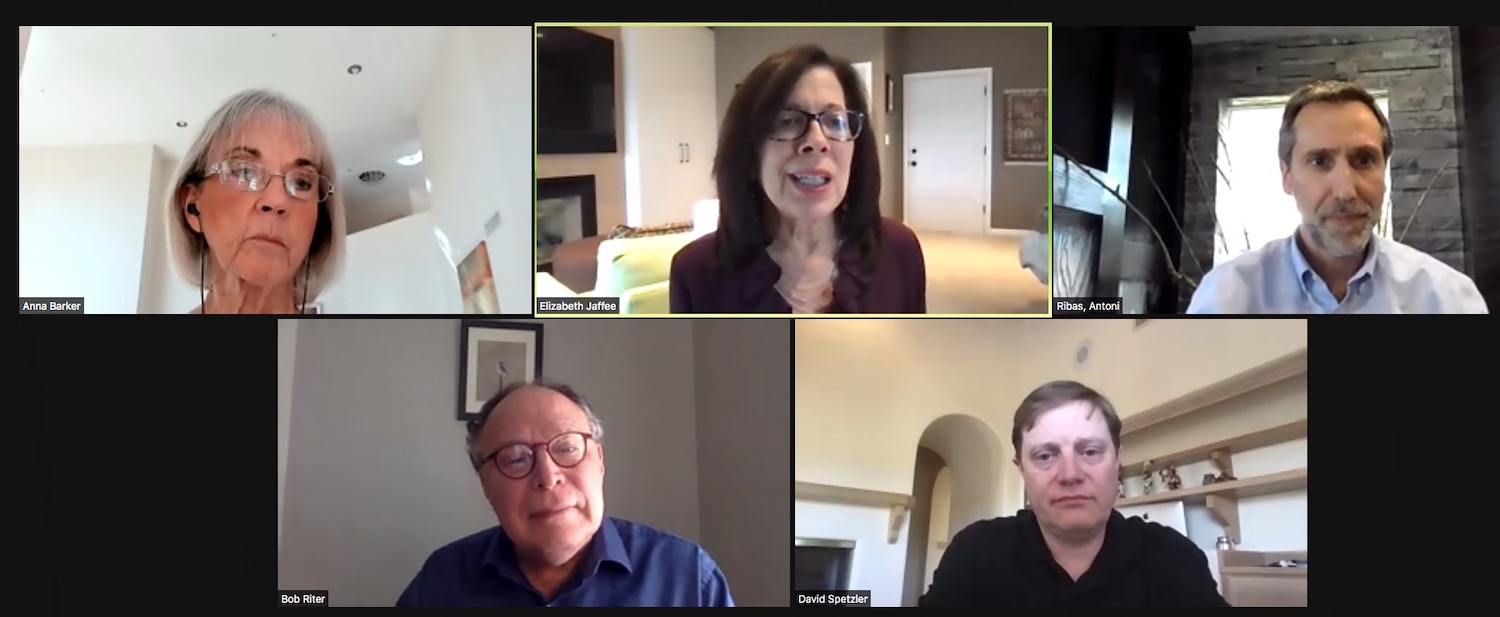More than 150 participants tuned in Feb. 16 for a virtual patient advocate forum on precision oncology held by the American Association for Cancer Research (AACR), which publishes Cancer Today.
Speakers discussed advances in cancer diagnostics, the latest research into targeted therapies, and breakthroughs in immunotherapy. Cancer researcher Anna D. Barker of the Ellison Institute for Transformative Medicine at the University of Southern California in Los Angeles moderated the forum.
Hematologist-oncologist John L. Marshall of the Georgetown Lombardi Comprehensive Cancer Center in Washington, D.C., said that every cancer patient should receive molecular profiling to help determine whether precision therapies are available to treat their disease. Marshall, who is the director of the Otto J. Ruesch Center for the Cure of Gastrointestinal Cancers, said sorting cases of gastrointestinal cancer by molecular subtype can help determine more effective treatments and, in the future, could tell who doesn’t need further treatment after surgery to remove a colorectal tumor.
“In order to take care of a patient with colon cancer, I have to know some genetic information,” he said. “With almost every solid tumor that we take care of, we’re developing a sort of pie chart of dividing these cancers into their molecular subgroups” to do a better job of potentially offering targeted treatments.
Molecular profiling can mean tumor testing or analysis of patients’ blood for traces of cancer, called liquid biopsy. These approaches can not only help doctors and patients decide on the best treatment, but also the best order of treatment, said David Spetzler, president and chief scientific officer of the biotechnology firm Caris Life Sciences. He cited the example of two combination chemotherapies for metastatic colorectal cancer—FOLFOX (folinic acid, fluorouracil and oxaliplatin) and FOLFIRI (folinic acid, fluorouracil and irinotecan)—that are used one after the other on these patients. Spetzler and his colleagues published a study in the February 2021 issue of Clinical Cancer Research demonstrating that an artificial intelligence-derived molecular signature could be used to predict which patients would benefit from receiving FOLFOX as their initial treatment versus FOLFIRI.
Running parallel with the rapid growth of targeted therapies has been a proliferation of immunotherapy treatments, in which the patient’s own immune system is equipped to attack and kill cancer cells. According to medical oncologist Elizabeth M. Jaffee, deputy director of the Johns Hopkins Kimmel Cancer Center in Baltimore and an AACR past president, the burst of new immunotherapy treatments over the past decade is due to decades of research and technological advancements that came before. Jaffee said that advances in combining immunotherapy drugs with each other and with precision therapies and chemotherapy will continue to increase survival. Other areas of progress will include expanding use of immunotherapy treatments in children, learning when to select immune therapies as first-line cancer treatments and discovering additional biomarkers that will indicate when immunotherapies will be effective.
Bob Riter, a breast cancer survivor and a patient advocate at Cornell University’s Physical Sciences Oncology Center in Ithaca, New York, presented an advocate’s perspective at the forum. Riter argued that advances like those described at the forum are not always available in community hospitals far from the academic medical centers where most cancer research is conducted. He also cited high costs for advanced treatments and questioned whether such costs can be sustained.
The rapid progress made in understanding COVID-19 and developing effective treatments and vaccines offered a lesson for cancer researchers, participants said.
“Science is what will get us out of COVID and what will get us out of cancer,” said medical oncologist Antoni Ribas during a panel discussion that ended the forum. Ribas, the AACR president, directs the Jonsson Comprehensive Cancer Center Tumor Immunology Program and the Parker Institute for Cancer Immunotherapy Center at the University of California, Los Angeles.
For Jaffee, rapid progress in developing multiple COVID-19 vaccines has shown “what science can do when the community comes together,” data are shared and research is funded adequately.
Cancer Today magazine is free to cancer patients, survivors and caregivers who live in the U.S. Subscribe here to receive four issues per year.





